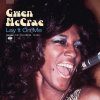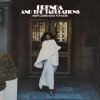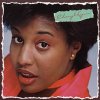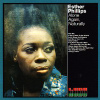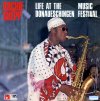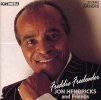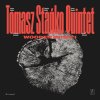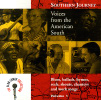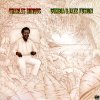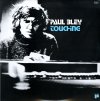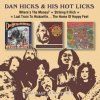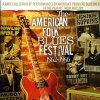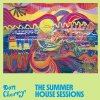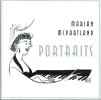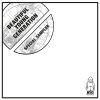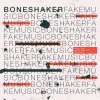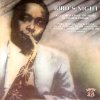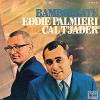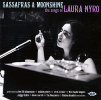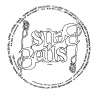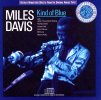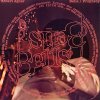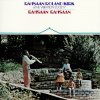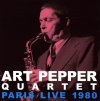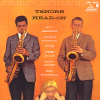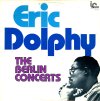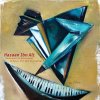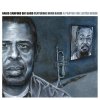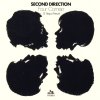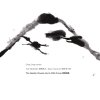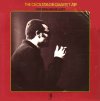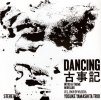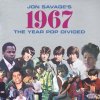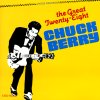All Categories
Reel Music  Phrase match
Phrase match
Sort by
Close matches: 7
Columbia/
Amazing rare soul from Gwen McCrae – little-known material recorded for Columbia records in the years before her later 70s fame at TK! The style here is nice and rootsy – very southern soul in its approach, even more so than Gwen's earliest work at TK – thanks, perhaps, to less of a club or pop crossover need in the production. Yet there's also a key link with the TK years, too – production by Steve Alaimo, who's really finding his way here in a great way – borrowing bits from other southern soul modes, moving them down to Miami, and helping forge a whole new chapter in southern soul for the 70s. Gwen's vocals are incredible – arguably even deeper and more hard-hitting than on some of her bigger hits – and the freshness of the material further makes the set great. Plus, since Columbia never issued a full album of this work in the US (although there was one rare record of the singles in Europe in the 70s), this package makes the first-ever full length Columbia album from Gwen – put together with stunning sound, very detailed notes, and some great vintage images. Titles include "Leave The Driving To Us", "Ain't Nothing You Can Do", "Lay It On Me", "Lead Me On", "Lovin In The Lay A Way", "I'm Losing The Feeling", and "Been So Long". CD
Chess/
One of the deepest soul records ever issued by Chess Records – and the album wasn't even done in Chicago! The album's the only full effort issued under the name of Kim Tolliver – a singer who'd worked previously for Fantasy as Kimberley Briggs – and it's a sublime effort from Tolliver and husband Fred Briggs, who'd worked together previously on work for Stax by Margie Joseph! The style here is quite unique – a mix of Kim's southern soul-styled vocals with some fuller, richer touches – almost in the same way that Gloria Scott comes across on her classic album with Barry White – but a bit more rough around the edges overall. The production is amazing – with a great sense of space and style – and some key use of echo that really underscores the emotion of the tunes. A good part of the album was recorded in Miami – with echoes of the TK modes of the time – but other recording was also done in Cleveland, which might account for the more unique aspects of the set. Regardless of location, though, the album's a tremendously individual effort – a bold, raw statement from Tolliver – filled with emotion that few of her contemporaries could match, and free of any crossover soul cliches that were really bogging down other artists at the time. Most tracks here are original – as original in conception as the sound of the record – and titles include "The Other Side Of Town", "The Way He Used To", "She Don't Know You Like I Do", "Takin A Woman's Stand", "I'm Losing The Feeling", "Learn To Get Along Without You", and "I Need You/
Chocolate City/
Sublime second generation soul from Brenda & The Tabulations – a sweet set of Philly grooves, recorded at Sigma sound with help from Norman Harris, Bobby Eli, and John Davis! The album's every bit as groove-heavy as you'd expect from work by those dancefloor heavyweights – and the record's a great change from the earlier style of Brenda and the group – more positive and progressive, yet still with a few of the fragile ballads that first got them noticed! There's a great sense of class and poise to the record – a progression from the early years that's similar to that which many other Philly artists experienced with Gamble & Huff – almost more surprising here, given that sometimes a Casablanca record didn't come out with the same sort of care. Titles include "Superstar", "Home To Myself", "I Keep Coming Back For More", "Let's Go All The Way Down", "Leave Me Alone", and "Everybody's Fool". CD also features a bonus 12" mix of "Let's Go All The Way Down" – and an excellent Reel Music job of mastering and liner notes! CD
Columbia/
Massive work from the great Cheryl Lynn – and a key bridge between late 70s disco and the newer grooves of the 80s club scene! The album's a mix of midtempo groovers with a few mellower tracks – and it's got a tight, slightly jazzy sound that was very fresh at the time, and which still holds up incredibly well today – really a cut above most of Cheryl's contemporaries, and most of her later work too! The standout cut on the record is the landmark groover "Got To Be Real" – but there's loads of other great ones, like "Star Love", "Daybreak (Storybook Children)", "Give My Love To You", "All My Lovin", "You Saved My Day", and "Come In From The Rain". Features bonus tracks – "Got To Be Real (7" version – with different vocals)" and "You Saved My Day (12" version)". CD
Also available Cheryl Lynn ... LP 19.99Kudu/
One of the deepest soul sets from Esther Phillips' 70s years on Kudu Records – a set with some nicely gritty grooves and a surprisingly earthy feel at times – especially when compared to some of her other albums of the time! Backings are by James Brown's old reedman, Pee Wee Ellis – and although there's some of the usual Kudu electric funk in the mix, there's also some deeper soul elements too – a vibe that's often a bit laidback and open, almost more Atlantic Records at points – which is a mighty good fit for Esther's wonderful voice! As usual for Kudu, the players are an all-star lineup – one that includes Richard Tee on keyboards, George Benson on guitar, Maceo Parker on tenor, and Bernard Purdie and Billy Cobham on drums – and Don Sebesky's also on deck a bit, to sweeten a few tracks up with light strings. The album's got a great version of Bill Withers' "Use Me" that features a tasty break in the intro – and other titles include a great version of "Alone Again (Naturally)", plus the cuts "Let's Move & Groove", "Cherry Red", "Let Me In Your Life", and "You & Me Together". CD
Casablanca/
A great little album from Jeannie Reynolds – and her lasting contribution to underground soul! Jeannie's vocals are nice and deep – with hints of southern diva phrasing, filtered through some of the tighter soul styles coming out of Chicago and other points north at the time! Detroit talents LJ Reynolds, Tony Hester, and Don Davis produce – save for one song by Michael Henderson – and the big highlight is the slow groover "The Fruit Song", a sly seductive stepper of a track, with rolling congas, sweeping strings, and a very catchy hook from Jeannie. That number runs for about 7 minutes long – and the album also includes a number of nice shorter cuts, like "I've Still Got My Pride", "The Feelin' Ain't There", and "You Want To Get Your Hands On A Woman" – all wonderful numbers that will have you loving Jeannie as one of your favorite new discoveries in 70s soul! CD also features 4 non-LP bonus cuts – "Phone's Been Jumping All Day", "Unwanted Company", "Lay Some Lovin On Me", and "Love Don't Come Easy For Me". CD
MoWest/
The incredible lost album from the group Sisters Love – material slated for release in the early 70s, but never saw the light of day, save for a handful of singles – a mix of rootsier southern soul and impeccable west coast funk styles, finally brought to light and with bonus tracks, to boot! Sisters Love came to Motown/
Possible matches: 8
Papa (UK), 2008. Used ... Out Of Stock
We totally loved Reel People's Seven Ways To Wonder album – and this special remix set is equally great – a package of wonderful new versions that features work from a host of hip producers! The set has all the soulful spirit of the original album, but also takes off in some more spaciously soaring modes too – a mix of British cosmic touches and classic instrumental roots – both of which really show up in some of the mixes here! Vocals are by Omar, Tony Momrelle, and Tasita D'Mour – and titles include "Outta Love (4 Hero rmx)", "It Will Be (Kyoto Jazz Massive rmx)", "Love Is Where You Are (The Realm rmx)", "Alibi (Rasmus Faber rmx)", "Amazing (Jon Cutler's distant music mix)", "Upside (Bugz upside mix)", "Upside (Pete Kuszma rmx)", "Love Is Where You Are (Orto rmx)", and "Anything You Want (Domu rmx)". 12 tracks in all! CD
Reel Art, 2023. New Copy ... $34.99 49.95
A huge array of photographs from the golden years of 90s hip hop – all captured within a few short years by Peter Spirer, at a time when he was diving deep into the scene to really document the sort of energy that's made this stretch such a legendary one for the music! These photos are way more than standard portraits or stage shots, as Peter managed to really penetrate the everyday lives of the artists, to a point where you'll find some very surprising, and very striking images of figures who aren't always captured without striking a pose. The book features over 130 photographs, with subjects who include Dr Dre, Das Efx, Biz Markie, Busta Rhymes, Notorious BIG, Method Man, Nas, Q-Tip, Tupac, Guru, KRS-One, and dozens of others – and the heavy hardcover book is 240 pages in length – with added text from Soren Baker, and an introduction from Ice T. Book
Columbia/
A trio of excellent albums from master drummer Tony Williams – all brought together in a single package! Believe It is crackling funky fusion from Tony Williams' "new" version of his classic Lifetime group – a quartet that featured some smoking guitar work by jazz rock legend Allan Holdsworth! The sound on the set is very full-on and jamming – fuzzed-out guitars taking over most of the tracks, and Tony jumping into the fray with some really frenetic work on drums – miles away from his earlier jazz work in the 60s, and really taking off with the best sort of rock/
BBE (UK), 1970s/
An incredible collection of Stevie Wonder cover versions – different versions of familiar tunes, but ones that really manage to sparkle with all the righteous soul of the Stevie himself! It's been over a decade since DJ Spinna brought us the last version of his Wonder Of Stevie series – and during that time, he's managed to come up with a huge amount of great tracks that make the whole thing go way way deeper than before – not just cuts that copy the Wonder mode, but which seem to draw strong inspiration from its genius, and really soar to the skies! Much of the music here resonates with a charm that's located around the years of albums like Music Of My Mind and Innervisions, with all the jazzy currents that might imply – and some cuts are 70s vintage, others are more contemporary. Titles include "Bird Of Beauty" by US Atlantic First Navy Show Band, "It's My Pleasure" by Billy Preston, "Love's In Need Of Love Today" by John Minnis Big Bone Band, "As" by Tony Sherman, "Buttercup" by Jackson 5, "Have A Talk With God" by East St Louis Gospelettes, "Betcha Wouldn't Hurt Me" by Quincy Jones, "Golden Lady" by Reel People with Tony Momrelle, "If You Don't Love Me" by GC Cameron, "If She Breaks Your Heart Again" by Foreign Exchange, "Don't You Worry Bout A Thing" by Black Sugar, "Go Home" by Jrod Indigo, and "Make My Water Boil" by David Ruffin. 2CDs – one of the cuts unmixed, one with the tracks in a continuous mix by Spinna! CD
Also available Wonder Of Stevie 3 – Presented By DJ Spinna ... LP 22.99BBE (UK), 1970s/
An incredible collection of Stevie Wonder cover versions – different versions of familiar tunes, but ones that really manage to sparkle with all the righteous soul of the Stevie himself! It's been over a decade since DJ Spinna brought us the last version of his Wonder Of Stevie series – and during that time, he's managed to come up with a huge amount of great tracks that make the whole thing go way way deeper than before – not just cuts that copy the Wonder mode, but which seem to draw strong inspiration from its genius, and really soar to the skies! Much of the music here resonates with a charm that's located around the years of albums like Music Of My Mind and Innervisions, with all the jazzy currents that might imply – and some cuts are 70s vintage, others are more contemporary. Titles include "Bird Of Beauty" by US Atlantic First Navy Show Band, "It's My Pleasure" by Billy Preston, "Love's In Need Of Love Today" by John Minnis Big Bone Band, "As" by Tony Sherman, "Buttercup" by Jackson 5, "Have A Talk With God" by East St Louis Gospelettes, "Betcha Wouldn't Hurt Me" by Quincy Jones, "Golden Lady" by Reel People with Tony Momrelle, "If You Don't Love Me" by GC Cameron, "If She Breaks Your Heart Again" by Foreign Exchange, "Don't You Worry Bout A Thing" by Black Sugar, "Go Home" by Jrod Indigo, and "Make My Water Boil" by David Ruffin. LP, Vinyl record album
Also available Wonder Of Stevie 3 – Presented By DJ Spinna ... CD 12.99Numero, Late 60s/
One of the coolest collections ever put out by The Numero Group – and that's saying a lot, given the hipness of the label! Downriver Revival chronicles the story of a unique studio in Michigan – Double U Sound, a custom recording spot that captured a wonderful range of soul, funk, gospel, and other sounds from the local community – beautifully presented here in a full CD, plus a bonus DVD that features the near-complete 200 song archive of the studio! The DVD's really unique – so we'll talk about it first: Done with an interactive menu that lets you literally comb through the boxes of tapes in the Double U vault – selecting each reel recorded by the studio, and sampling the rich array of wonderful sounds from this untapped Michigan scene – a huge amount of music, far more than you'd ever find on a CD compilation. The DVD also features a documentary on the studio and Downriver Revial project – and that alone would be worth the price of admission – but the CD then features 24 key numbers pulled from the vaults – tracks that were either issued on rare 45s, or never issued at all – and which represent a wonderful array of soulful sounds that definitely lives up to the Numero standard! Titles include "There's A Light" by Shirley Ann Lee, "Take Care Of Us" by The Revelations, "Untitled Jam" by Bobby Cook & The Explosions, "Foot Stumping (alt)" by Organics, "While You Were Gone" by Combinations, "Heaven" by Deliverance Echoes, "Untitled" by Burgess Band, "Round N Round" by Junior Mays Group, and "Walk With Me" by Calvin Cooke. CD
(Please note that the DVD is Region 1.)
Tompkins Square, 1976. Used Gatefold ... Out Of Stock
Awe-inspiring solo guitar from Mark Fosson – brilliant stuff that rivals Fahey, Peter Lang and any other folk guitar geniuses who influenced him – recorded direct to reel-to-reel in Fosson's living room in 1976! Fosson's 12-string, the tape recorder and a rented microphone are all that went into the "production" – but the sound is impeccable, as is Fosson's playing! This is as wonderful as any rare folk guitar music we've been introduced to in quite a while! Includes "Quarter Moon" (plus and alternate take), "Arrival Of The Grand Picayune", "Cosmic Hiccup", "Frozen Fingers" (also with an alternate take), "Gorilla Mountain", "Nancy's Waltz", "Sky Piece" and the only non-original, "Back In The Saddle Again", which is a great, non-nostalgic take on the Gene Autry song. CD
Numero, Late 60s/
One of the coolest collections ever put out by The Numero Group – and that's saying a lot, given the hipness of the label! Downriver Revival chronicles the story of a unique studio in Michigan – Double U Sound, a custom recording spot that captured a wonderful range of soul, funk, gospel, and other sounds from the local community – beautifully presented here in a full CD, plus a bonus DVD that features the near-complete 200 song archive of the studio! The DVD's really unique – so we'll talk about it first: Done with an interactive menu that lets you literally comb through the boxes of tapes in the Double U vault – selecting each reel recorded by the studio, and sampling the rich array of wonderful sounds from this untapped Michigan scene – a huge amount of music, far more than you'd ever find on a CD compilation. The DVD also features a documentary on the studio and Downriver Revial project – and that alone would be worth the price of admission – but the CD then features 24 key numbers pulled from the vaults – tracks that were either issued on rare 45s, or never issued at all – and which represent a wonderful array of soulful sounds that definitely lives up to the Numero standard! Titles include "There's A Light" by Shirley Ann Lee, "Take Care Of Us" by The Revelations, "Untitled Jam" by Bobby Cook & The Explosions, "Foot Stumping (alt)" by Organics, "While You Were Gone" by Combinations, "Heaven" by Deliverance Echoes, "Untitled" by Burgess Band, "Round N Round" by Junior Mays Group, and "Walk With Me" by Calvin Cooke. CD
Partial matches: 81
ECM (Germany), 1980. Used ... $9.99
A real standout in the classic catalog of ECM – not only because the record's got a slightly different inspiration than most, but also because it seems to unlock some especially beautiful moments from players who could sound different in other settings on the label! As the title indicates, the tunes here all take inspiration from the poetry of Robert Creeley – but never in a mode that's got the usual jazz meets poetry approach – as Sheila Jordan sings the lyrics when they appear, with a sense of her own power that's very different than a more standard recitation – and which, to us, really feels a lot like her great vocal performances with Steve Kuhn for ECM. Kuhn is also in the group on piano, and other musicians include David Liebman on saxes, Lyle Mays on keyboards, and Bob Moses on drums – all working under the superb leadership of bassist Steve Swallow – who really outdid himself with the depth of feeling in this project. Titles include "Colors", "In The Fall", "She Was Young", "Some Echoes", "Ice Cream", and "You Didn't Think". CD
(2019 pressing in a gatefold sleeve.)
ECM, 1980. Near Mint- ... Out Of Stock
A real standout in the classic catalog of ECM – not only because the record's got a slightly different inspiration than most, but also because it seems to unlock some especially beautiful moments from players who could sound different in other settings on the label! As the title indicates, the tunes here all take inspiration from the poetry of Robert Creeley – but never in a mode that's got the usual jazz meets poetry approach – as Sheila Jordan sings the lyrics when they appear, with a sense of her own power that's very different than a more standard recitation – and which, to us, really feels a lot like her great vocal performances with Steve Kuhn for ECM. Kuhn is also in the group on piano, and other musicians include David Liebman on saxes, Lyle Mays on keyboards, and Bob Moses on drums – all working under the superb leadership of bassist Steve Swallow – who really outdid himself with the depth of feeling in this project. Titles include "Colors", "In The Fall", "She Was Young", "Some Echoes", "Ice Cream", and "You Didn't Think". LP, Vinyl record album
Also available Home – Music By Steve Swallow To Poems By Robert Creeley ... CD 9.99MPS, 1967. Near Mint- ... Out Of Stock
Some of Archie Shepp's most freewheeling material of the 60s – a long, extended, single-song album recorded at the Donaueschingen festival a few years before his classic work for BYG/
(Japanese non-gatefold pressing – ULS 1636. Spine has some light splitting, but this is a great copy overall.)
Denon, 1990. Used ... Out Of Stock
One of the last great records ever cut by Jon Hendricks – one of our favorite singers of all time! The album's a bit of a "tour de force" – with Hendricks singing alongside a host of famous jazz musicians and vocalists, working in an all star setting that's sometimes too good for its own good, but at other times works magically! The best moments are those when Jon actually takes the lead himself, singing in that warm, raspy, honest style that's always made him the kind of a singer that brings meaning to lyrics that always leave us cold from other vocalists. The album's got a wonderful re-reading of the Italian classic "Estate", redone here with English lyrics as "In Summer" – and one of Hendricks finest moments on record! Other tracks include "Listen To Monk", "Sugar", "Freddie Freeloader", "High As A Mountain", "Trinkle Tinkle", and "The Finer Things In Life" – and players include Tommy Flanagan, George Benson, Wynton Marsalis, Stanley Turrentine, and Al Jarreau. CD
Astigmatic (Poland), 1972. New Copy Gatefold (reissue)... Out Of Stock
There's nothing wooden about this music at all – as the album's one of the loosest, freest, liveliest sessions to ever come from the legendary trumpeter Tomasz Stanko – a performance that was originally done for Radio Bremen in 1972, and which is very different than most of his other albums from the time! The music here is all freely improvised, with a vibe that's at the headiest of the FMP generation – as Stanko's trumpet interacts with the tenor and flute of Janusz Muniak, bass of Bronislaw Suchanek, violin of Zbigniew Seifert, and drums of Janusz Stefanski – all players who are completely unbridled all the way through! If you only know Seifert from his mellower albums later in the 70s, he'll blow you away here – as, like a few other key musicians at the time, he's got a way of improvising on his instrument that matches the energy of a reedman – and which really adds a lot to the group. The set features six pieces, all improvised – issued here commercially for the first time ever, and a real revelation! LP, Vinyl record album
Rounder, 1959/
Music from Bessie Jones, Hobart Smith, Sid Hemphill & Lucius Smith, Vera Ward Hall, Fred McDowell, Bright Light Quartet, Neil Morris, Sidney Carter, Ollie Gilbert, Almeda Riddle & more – part of the Alan Lomax collection! CD
Wackie's (Germany), 1980. New Copy ... Out Of Stock
Wonderfully righteous work from the Wackie's label – a heady set of long roots reggae tunes with a very message-oriented vibe – all with the feel of a very small label scene from the Kingston scene of five years before, than some of the bigger and more commercial Jamaican music from the start of the 80s! The sound is nice and lean – snakey guitar lines in a very echoey, dubby space – as Clive Davis and Christopher Harvey harmonize together on the lyrics, somehow bringing a lot more power to the message than if they were delivered by a single singer. Titles include "Sun Will Shine", "Great Jah Jah", "Roman Soldiers", "Living In The Ghetto", and "Where Is That Love". CD
Milestone, 2002. Used ... $4.99
This tenor giant gets better and better with each new album! Eric Alexander is one of our favorite new jazz artists of the past decade – still a relatively young player, but with a sound that's incredible, steeped in years of tradition, yet freely creative in his own unique way. His tenor solos on this set stand up to some of our favorite older work by players like Clifford Jordan or Sonny Rollins, and if anything, the backing may be some of the best he's ever received on record. Alexander's playing here with longtime friend and musical partner Harold Mabern – who's as sympathetic to Alexander's sound as he once was to that of Frank Strozier – and the other players in the group include trumpeter Nicholas Payton, John Webber, and Joe Farnsworth. Titles include "Andre's Turn", "After The Rain", "This Girl's In Love With You", "A House Is Not A Home", and "Summit Meeting". CD
Reel Art, 2021. New Copy ... $37.99 49.95
A great look at a really unique moment in fashion – a time when the mainstream trappings of ivy league styles were taken up by African-American cultural figures – a moment of cooption that led was key to a rising sense of pride and power in the postwar years! You'll instantly recognize the look from the image of Miles Davis on the cover – and Davis is one of the figures who gets focus in the book – alongside other jazz musicians like Billy Taylor and Sonny Rollins, writers like Amiri Baraka and James Baldwin, and civil rights icons like Martin Luther King and Malcolm X – all of whom wore button down shirts, well-crafted blazers, and hip skinny ties as they helped forge a whole new identity for black America in the 50s and 60s. The book is beautifully done – and ties together so many images we know from the press and record covers, mixed with others we're seeing here for the first time – all give thoughtful text along the way by British writer Jason Jules. The heavy, hardcover book is 224 pages in all – with color and black and white images throughout. Book
Sawano/
Pianist Robert Lakatos is in great form here – able to improvise freely like a contemporary musician at some points, swing with bop at other moments, while also coming across with gentler, more introspective modes at different – all with really well-balanced accompaniment from Christian Lakatos on bass and Gregory Hutchinson on drums! The album has the well-recorded sense of sound that we love in many of the Sawano piano trio projects – a great extension of older Japanese and French piano modes – and titles include the two improvised tracks "Shining" and "B In B" – plus "The Good Life", "It's All Right With Me", "The Past", "Sepia", and "Scrapple From The Apple". LP, Vinyl record album
(Great Japanese pressing – heavy cover and vinyl!)
Atlantic/
A set of incredible records from Charles Mingus – all presented together in one mighty nice package! First up is Mingus Moves – a fantastic fresh new chapter in the career of Charles Mingus – a set that features the addition of two key players who would really shape his sound in the 70s – Don Pullen on piano and George Adams on tenor, both completely wonderful here! The group also features excellent trumpet from Roland Hampton, a player we don't know from many other settings – and the set also features some really nice vocal work from Honi Gordon and Doug Hammond. Titles include "Canon", "Moves", "Wee", "Flowers For A Lady", "Opus 3", and "Newcomer". CD also features bonus tracks – "Big Alice" and "The Call". Changes is key 70s work from Charles Mingus – an album that was recorded over the course of three days of creative activity at the end of 1974, but somehow split into two different albums under the Changes name! The lineup here is prime 70s Mingus – George Adams on tenor, Jack Walrath on trumpet, and Don Pullen on piano – young players who really give a fresh voice to Mingus' musical ideas, and help him find this beautiful late life sense of color, tone, and timing that's completely sublime! Titles on this second volume include "Sue's Changes", "Devil Blues", "Remember Rockefeller At Attica", "Free Cell Block F Tis Nazi USA", "Black Bats & Poles", "For Harry Carney", and "Duke Ellington's Sound Of Love" – which features a guest appearance by Marcus Belgrave on trumpet and Jackie Paris on vocals. On 3 Or 4 Shades Of Blues, Charles Mingus is returning to the soulful gospel-influenced mode he swung big in the early 60s! The record's something of a later predecessor of the classics Blues & Roots for Atlantic and Mingus (x5) for Impulse – and the style is slightly less dramatic, but still quite steeped in soulful explorations that feature plenty of notes from the bluer side of the spectrum! Players include George Coleman and Ricky Ford on tenor, Jack Walrath on trumpet, and Larry Coryell on guitar – and titles include new takes on "Better Git Hit In Your Soul" and "Goodbye Porkpie Hat" – plus"Nobody Knows", "Noddin Ya Head Blues", and "Three Or Four Shades Of Blues". Next is Cumbia & Jazz Fusion – one of the most enigmatic albums that Charles Mingus ever recorded – especially in his later years! The set features two very long tracks done by Mingus for use in a film about cocaine traffic between New York and Columbia – but considering the nature of the music, and the freely exploratory style, both numbers here stand very well on their own! Although touched with some of the Latin influences you might expect from the title, the sounds are often darker and more brooding than, say, the Mingus style on the classic Tijuana Moods set. And instead, there's a very serious soundtrack-like vibe going on through most of the set – larger jazz orchestrations used to beautifully underscore subtle themes, and breakout solo moments from players who include Mauricio Smith on flute, Paul Jeffrey on tenor sax, Jack Walrath on trumpet, and Jimmy Knepper on trombone. The album also features a fair bit of added percussion – and features two long tracks, "Cumbia & Jazz Fusion" and "Music For Todo Modo". Me Myself An Eye is complicated later work from Charles Mingus – a great illustration of the way his power to command a large ensemble never wavered as the years went on! The album features two different large groups of players – filled with modernists young and old – including Ricky Ford, George Coleman, and Michael Brecker on tenors; Ronni Cuber and Pepper Adams on baritone; Randy Brecker and Jack Walrath on trumpets; Lee Konitz on alto, Larry Coryell on guitar, Slide Hampton on trombone, and Eddie Gomez on bass. Side one features the 30 minute track "Three Worlds Of Drums", and side two contains a remake of "Wednesday Night Prayer Meeting", plus "Devil Woman" and "Carolyn Keki Mingus". Something Like A Bird is one of the last albums Charles Mingus ever gave us – before departing this planet way way too soon! The set shows the increasing sophistication of Mingus' music in these later years – a mode that almost echoes the path that Duke Ellington would take in his final decade – a move towards some larger-form material that still holds onto all the raw energy of the early days, but finds a way to not only bridge larger musical ideas – but musical generations as well! As part of this, the set's got a wonderful lineup – with Lee Konitz on alto, Pepper Adams on baritone sax, George Coleman on tenor, Eddie Gomez on bass, and Joe Chambers on drums – and titles include the long title track, "Something Like A Bird", split up over 2 sides of the LP, plus "Farewell Farwell". CD
Atlantic/
One of the most enigmatic albums that Charles Mingus ever recorded – especially in his later years! The set features two very long tracks done by Mingus for use in a film about cocaine traffic between New York and Columbia – but considering the nature of the music, and the freely exploratory style, both numbers here stand very well on their own! Although touched with some of the Latin influences you might expect from the title, the sounds are often darker and more brooding than, say, the Mingus style on the classic Tijuana Moods set. And instead, there's a very serious soundtrack-like vibe going on through most of the set – larger jazz orchestrations used to beautifully underscore subtle themes, and breakout solo moments from players who include Mauricio Smith on flute, Paul Jeffrey on tenor sax, Jack Walrath on trumpet, and Jimmy Knepper on trombone. The album also features a fair bit of added percussion – and features two long tracks, "Cumbia & Jazz Fusion" and "Music For Todo Modo". CD
Fontana/
Prime modern work from the great Paul Bley – a pianist who was really expanding his sound at this time – to a level that would soon make him a legend around the globe! The European date is a great chance to hear Bley really opening things up – playing freely, with an amazing command of the keyboard – faster flurries of notes at times than you might hear on his 70s material, but with an equally sensitive ear for space and sound – all balanced by perfect work from Kent Carter on bass and Barry Altschul on drums! There's an instantly haunting quality to the music – which is all unique original material from Bley's scene – titles that include his own compositions Bley's "Pablo" and "Mazatlan", plus Annette Peacock's "Both" and "Cartoon", and Carla Bley's "Start". LP, Vinyl record album
(Japanese pressing – with obi – a great copy!)
Columbia, 1963. Very Good+ ... Temporarily Out Of Stock
An incredible batch of freely crafted tracks from Jimmy Giuffre's legendary early 60s trio! The group features Steve Swallow on bass and Paul Bley on piano, and the two young modernists were a perfect match of Giuffre's ever-developing ideas of freedom and harmony. The music is beautiful – with a sound that's like nothing else we can describe, and an approach that's free floating (or free falling), but never directionless, and never overindulgent. Perfectly measured, with a strong sense of melody and rhythm, even amidst the more outside moments. Titles include "Propulsion", "Threewe", "Dichotomy", "Man Alone", and "Divided Man". LP, Vinyl record album
(2 eye mono pressing. Cover has some light wear, but this is a great copy.)
Atlantic/
One of the most enigmatic albums that Charles Mingus ever recorded – especially in his later years! The set features two very long tracks done by Mingus for use in a film about cocaine traffic between New York and Columbia – but considering the nature of the music, and the freely exploratory style, both numbers here stand very well on their own! Although touched with some of the Latin influences you might expect from the title, the sounds are often darker and more brooding than, say, the Mingus style on the classic Tijuana Moods set. And instead, there's a very serious soundtrack-like vibe going on through most of the set – larger jazz orchestrations used to beautifully underscore subtle themes, and breakout solo moments from players who include Mauricio Smith on flute, Paul Jeffrey on tenor sax, Jack Walrath on trumpet, and Jimmy Knepper on trombone. The album also features a fair bit of added percussion – and features two long tracks, "Cumbia & Jazz Fusion" and "Music For Todo Modo". CD
Also available Cumbia & Jazz Fusion ... CD 12.99(1994 pressing.)
Chess, Late 50s/
A classic collection of Chuck Berry's early genius – a set that introduced his best cuts to a new younger audience in the 70s! All the work here is from the early Chess Records days – and titles include "Deep Feeling", "Wee Wee Hours", "Nadine", "Brown-Eyed Handsome Man", "Roll Over Beethoven", "Thirty Days", "Havana Moon", "Too Much Monkey Business", "School Days", "Reelin & Rockin", "Oh Baby Doll", "Too Pooped To Pop", "Round & Round", "Rock & Roll Music", and "Back In The USA". LP, Vinyl record album
(Cover has light wear.)
Tum (Finland), 2005. Used ... Out Of Stock
One of the warmest, most earthy albums we've ever heard from avant percussionist Andrew Cyrille – a set done with his Haitian Fascination group, and one that definitely lives up to that name! There's lots of percussion on the date – played by Cyrille and Frisner Augustin, mixed with these deep, round basslines from Lisle Atkinson – amidst which dances acoustic guitar from Alix Pascal, almost with a bossa inspiration – and the whole thing's topped off with deeply soulful work on baritone sax by Hamiet Bluiett! The album's got all the freely creative energy of Cyrille and Bluiett's best from years back, but also has a more open, earnest feel too – really wonderful stuff, on original cuts that include "Route Des Freres", "Spirit Music", "Sankofa", "Ti Kawol", "Mais", "C'mon Baby", and "Marinet". CD
(Out of print.)
Hat Art (Switzerland), Early 60s. Used 2CD ... Out Of Stock
A pair of legendary albums from the mighty Joe Harriott – a player who emigrated to England in the 50s, then set the scene on fire in the following decade! First up is Free Form – the landmark album that forever put saxophonist Joe Harriott on the map, and it's a brilliant batch of tracks that prove that Harriott was advancing the jazz avant garde in England as much as players like Ornette Coleman and Cecil Taylor were advancing it in America. Despite the "free form" of the title, the tracks are more "new thing" – somewhat structured, with a rhythmic approach that's still a little straight, but solos that go nice and outside. Joe's overall conception is a beautiful mix of angular thinking with freely expressed soulful emotion – and the record's one that ranks up there with the 10 most groundbreaking of the 60s! The group's about as fantastic as you could ever expect from England at the time – with Shake Keane on trumpet, Pat Smythe on piano, Coleridge Goode on bass, and Phil Seamen on drums – and titles include "Formation", "Coda", "Abstract", "Straight Lines", and "Impression". Next is Abstract – one of the legendary sets of avant garde jazz by the British alto genius Joe Harriott – an artist who was sometimes billed as the British Ornette Coleman – a reputation he definitely earns with the groundbreaking quality of this album! The conception is bold right from the start – strongly rhythmic, but at a level that's different from Coleman's music – with some deeply emotional undertones to the solos (which also include work from Shake Keane on trumpet!) – and occasional modal elements that also bring in some spiritual elements to work perfect with the breakout solos. The group also features crack rhythm work from Pat Smythe on piano, Coleridge Goode on bass, and Phil Seaman on drums – and the track list includes "Subject", "Shadows", "Tonal", "Oleo", "Pictures", "Idiom", "Compound" and "Modal". CD
Blue Thumb/
A trio of albums from one of the most unique groups on the west coast scene! First up is Where's The Money – a classic live album from Dan Hicks and this mighty cool west coast combo – a set that's all stripped-down, and provides a great showcase for their amazing vocal and acoustic instrumental interplay! Dan's got two two female singers along for the performance – Maryann Price and Naomi Ruth Eisenberg – both of whom do way more than provide backup, as they work with plenty of percussion, and harmonize along with Dan's lead on most tracks – in that cool blend of acoustic roots and jazzy inflections that made the group so unique. The lineup also includes violin, mandolin, and bass – plus guitar from Dan – on titles that include "News From Up The Street", "Shorty Falls In Love", "The Buzzard Was Their Friend", "Is This My Happy Home", "Dig A Little Deeper", "Reelin Down", and "Caught In The Rain". Striking It Rich features the great Dan Hicks at the height of his powers – working in a sublime acoustic mode that weaves together strands of gypsy swing, American roots, harmony vocals, and plenty more too – all in a mode that's lean and timeless, and which was one of the hipper new sounds on the west coast scene of his generation! Dan works with great support from vocalists Maryann Price and Naomi Ruth Eisenberg – alongside instrumentation that includes guitar, bass, violin, mandolin, and plenty of percussion – all wrapped up with a sublime sound that has all the elements resonating together wonderfully! Titles include a great remake of his earlier gem "I Scare Myself" – plus "You Got To Believe", "O'Reilly At The Bar", "Moody Richard", "The Laughing Song", "Canned Music", "Skippy's Farewell", "Fujiyama", "Woe The Luck", and "I'm An Old Cowhand". Last Train To Hicksville is completely charming work from the great Dan Hicks – one of the few cats who could make us like music like this so much! Dan sings and plays rhythm guitar – and the group also features vocals from Maryann Price and Naomi Eisenberg – that lovely pair whose harmonies with Hicks really helped the group find their sound! As before, instrumentation is all acoustic, but used in these jazzy ways that are very unique – not folk, not string band, nor swing – but something very unique, and a real breath of fresh air in the 70s scene! Titles include "Long Come A Viper", "It's Not My Time To Go", "My Old Timey Baby", "Lonely Madman", "Cowboy's Dream No 19", and "Payday Blues". CD
Atlantic/
A set of incredible records from Charles Mingus – all presented together in one mighty nice package! First up is Mingus Moves – a fantastic fresh new chapter in the career of Charles Mingus – a set that features the addition of two key players who would really shape his sound in the 70s – Don Pullen on piano and George Adams on tenor, both completely wonderful here! The group also features excellent trumpet from Roland Hampton, a player we don't know from many other settings – and the set also features some really nice vocal work from Honi Gordon and Doug Hammond. Titles include "Canon", "Moves", "Wee", "Flowers For A Lady", "Opus 3", and "Newcomer". CD also features bonus tracks – "Big Alice" and "The Call". Changes is key 70s work from Charles Mingus – an album that was recorded over the course of three days of creative activity at the end of 1974, but somehow split into two different albums under the Changes name! The lineup here is prime 70s Mingus – George Adams on tenor, Jack Walrath on trumpet, and Don Pullen on piano – young players who really give a fresh voice to Mingus' musical ideas, and help him find this beautiful late life sense of color, tone, and timing that's completely sublime! Titles on this second volume include "Sue's Changes", "Devil Blues", "Remember Rockefeller At Attica", "Free Cell Block F Tis Nazi USA", "Black Bats & Poles", "For Harry Carney", and "Duke Ellington's Sound Of Love" – which features a guest appearance by Marcus Belgrave on trumpet and Jackie Paris on vocals. On 3 Or 4 Shades Of Blues, Charles Mingus is returning to the soulful gospel-influenced mode he swung big in the early 60s! The record's something of a later predecessor of the classics Blues & Roots for Atlantic and Mingus (x5) for Impulse – and the style is slightly less dramatic, but still quite steeped in soulful explorations that feature plenty of notes from the bluer side of the spectrum! Players include George Coleman and Ricky Ford on tenor, Jack Walrath on trumpet, and Larry Coryell on guitar – and titles include new takes on "Better Git Hit In Your Soul" and "Goodbye Porkpie Hat" – plus"Nobody Knows", "Noddin Ya Head Blues", and "Three Or Four Shades Of Blues". Next is Cumbia & Jazz Fusion – one of the most enigmatic albums that Charles Mingus ever recorded – especially in his later years! The set features two very long tracks done by Mingus for use in a film about cocaine traffic between New York and Columbia – but considering the nature of the music, and the freely exploratory style, both numbers here stand very well on their own! Although touched with some of the Latin influences you might expect from the title, the sounds are often darker and more brooding than, say, the Mingus style on the classic Tijuana Moods set. And instead, there's a very serious soundtrack-like vibe going on through most of the set – larger jazz orchestrations used to beautifully underscore subtle themes, and breakout solo moments from players who include Mauricio Smith on flute, Paul Jeffrey on tenor sax, Jack Walrath on trumpet, and Jimmy Knepper on trombone. The album also features a fair bit of added percussion – and features two long tracks, "Cumbia & Jazz Fusion" and "Music For Todo Modo". Me Myself An Eye is complicated later work from Charles Mingus – a great illustration of the way his power to command a large ensemble never wavered as the years went on! The album features two different large groups of players – filled with modernists young and old – including Ricky Ford, George Coleman, and Michael Brecker on tenors; Ronni Cuber and Pepper Adams on baritone; Randy Brecker and Jack Walrath on trumpets; Lee Konitz on alto, Larry Coryell on guitar, Slide Hampton on trombone, and Eddie Gomez on bass. Side one features the 30 minute track "Three Worlds Of Drums", and side two contains a remake of "Wednesday Night Prayer Meeting", plus "Devil Woman" and "Carolyn Keki Mingus". Something Like A Bird is one of the last albums Charles Mingus ever gave us – before departing this planet way way too soon! The set shows the increasing sophistication of Mingus' music in these later years – a mode that almost echoes the path that Duke Ellington would take in his final decade – a move towards some larger-form material that still holds onto all the raw energy of the early days, but finds a way to not only bridge larger musical ideas – but musical generations as well! As part of this, the set's got a wonderful lineup – with Lee Konitz on alto, Pepper Adams on baritone sax, George Coleman on tenor, Eddie Gomez on bass, and Joe Chambers on drums – and titles include the long title track, "Something Like A Bird", split up over 2 sides of the LP, plus "Farewell Farwell". CD
Also available Changes – The Complete 1970s Atlantic Studio Recordings (Mingus Moves/Transparency, 1983. Used 5 CDs ... Out Of Stock
A quartet of live performances from Sun Ra – all recorded within the span of a single week in 1983 – at a time when the Arkestra was clearly covering a fair bit of territory in Europe! As you might guess from the title, the concerts here were recorded in Milan, Zurich, West Berlin, and Paris – all during the last week of October and first day of November – in a whirlwind series of sets that also included Montreux material that ended up on the Hiroshima album (not included in this package.) Ra's at the start of his key 80s growth here – able to open up to new audiences in a range of styles, from freely experimental to more traditionally jazzy – all in ways that link together many traditions in a single set, and show that his talents were rooted in a deep tradition of musical expression. The 5CD set features a huge amount of material – and apart from Ra on piano and keyboards, other "all star" players include Lester Bowie and Don Cherry on trumpets, John Gilmore on tenor, Archie Shepp on tenor and soprano sax, Marshall Allen on alto and flute, Richard Davis on bass, Philly Joe Jones on drums, and Don Moye on percussion. CD
(Out of print.)
Tzadik, 1970s. Used 4 CDs ... Out Of Stock
A window into a near-lost side of American avant jazz of the 70s – the self-produced albums issued by Leo Smith on his Kabell label – presented here as a beautiful 4CD set, complete with over 2 hours of previously unreleased material! The original albums have always been incredibly hard to find, and they show a side of Smith that is one of the purest on record from the time – displaying him as a key innovator in the tradition of Chicago musicians of the AACM, and the New York players of the loft scene – both of whom Smith interacted with freely. Players on the set include Oliver Lake, Anthony Davis, and Pheerokan Ak Laff – and the set features music from the albums Creative Music 1, Song Of Humanity, Reflectativity, and Akhreanvention – as well as unreleased tracks from those sessions! CD
(Out of print.)
Moserobie (Sweden), 2005. Used ... Out Of Stock
Genius live work from tenor saxophonist Jonas Kullhammar – working here in trio formation with bass and drums, freely creating on the fly – and evoking the power of Sonny Rollins live classics for Blue Note and RCA! We've raved elsewhere on these pages about Kullhammar's tone and musical vision on the tenor – but it steps out even more strongly on this set, thanks to firm support from drummer Daniel Fredriksson and bassist Torbjorn Zetterberg – who both match Jonas' inventive energy on the record. As with Sonny Rollins Vanguard recordings for Blue Note, there's a tremendous depth of spirit and sound here, and one record is not nearly enough to capture the scope of talent – which is why we're happy they've decided to issue 3 albums worth of material from this date! Titles on this first volume include "One Down One Up", "Have Horn Will Blow", "Apex", and "Blessing In Disguise". CD
Moserobie (Sweden), 2005. Used ... Out Of Stock
Genius live work from tenor saxophonist Jonas Kullhammar – working here in trio formation with bass and drums, freely creating on the fly – and evoking the power of Sonny Rollins live classics for Blue Note and RCA! We've raved elsewhere on these pages about Kullhammar's tone and musical vision on the tenor – but it steps out even more strongly on this set, thanks to firm support from drummer Daniel Fredriksson and bassist Torbjorn Zetterberg – who both match Jonas' inventive energy on the record. As with Sonny Rollins Vanguard recordings for Blue Note, there's a tremendous depth of spirit and sound here, and one record is not nearly enough to capture the scope of talent – which is why we're happy they've decided to issue 3 albums worth of material from this date! Titles on this second volume include "Inchworm", "Sweet Georgia Bright", "J Blooz", "You Don't Know What Love Is", and "Oleo". CD
Mack Avenue, 2017. Used ... Out Of Stock
A huge step forward in music for saxophonist Jimmy Greene – an artist who's still reeling from the loss of his daughter, who was murdered at Sandy Hook Elementary in 2012 – but who's turning his grief and sorrow into some of the richest music he's ever recorded! The feel here is even deeper than the first volume dedicated to Green's daughter – original songs that burst out with so much life and energy, we're held rapt right from the very first note – almost never mired in the sort of melancholy you might expect from such an experience, and instead ready to set a new fire to light the way ahead! Greene plays tenor, soprano, alto, and baritone – and other musicians include Kevin Hayes on Rhodes and piano, Mike Moreno on guitar, Renee Rosnes on piano, Ben Williams and John Patitucci on bass, and Jeff Tain Watts and Otis Brown III on drums. Titles include "Fun Circuits", "Second Breakfast", "Flowers", "Stanky Leg", "Big Guy", "Amantes", and "Thirty Two". CD
Hat Art (Switzerland), Early 60s. New Copy 2CD ... Out Of Stock
A pair of legendary albums from the mighty Joe Harriott – a player who emigrated to England in the 50s, then set the scene on fire in the following decade! First up is Free Form – the landmark album that forever put saxophonist Joe Harriott on the map, and it's a brilliant batch of tracks that prove that Harriott was advancing the jazz avant garde in England as much as players like Ornette Coleman and Cecil Taylor were advancing it in America. Despite the "free form" of the title, the tracks are more "new thing" – somewhat structured, with a rhythmic approach that's still a little straight, but solos that go nice and outside. Joe's overall conception is a beautiful mix of angular thinking with freely expressed soulful emotion – and the record's one that ranks up there with the 10 most groundbreaking of the 60s! The group's about as fantastic as you could ever expect from England at the time – with Shake Keane on trumpet, Pat Smythe on piano, Coleridge Goode on bass, and Phil Seamen on drums – and titles include "Formation", "Coda", "Abstract", "Straight Lines", and "Impression". Next is Abstract – one of the legendary sets of avant garde jazz by the British alto genius Joe Harriott – an artist who was sometimes billed as the British Ornette Coleman – a reputation he definitely earns with the groundbreaking quality of this album! The conception is bold right from the start – strongly rhythmic, but at a level that's different from Coleman's music – with some deeply emotional undertones to the solos (which also include work from Shake Keane on trumpet!) – and occasional modal elements that also bring in some spiritual elements to work perfect with the breakout solos. The group also features crack rhythm work from Pat Smythe on piano, Coleridge Goode on bass, and Phil Seaman on drums – and the track list includes "Subject", "Shadows", "Tonal", "Oleo", "Pictures", "Idiom", "Compound" and "Modal". CD
Be! (Germany), 1974. New Copy ... Out Of Stock
Fantastic work from avant saxophonist Hans Koller – rare material that stands with the best Free Sound albums he released for MPS in the 70s! By this point in his career, Koller was really exploding with talent – a sax player who first begun in the postwar years with modes that were more California modern, but expanded and changed throughout the 60s – to the point where Hans was one of the most open-minded, freely-creative musicians on the central European scene! If you've only heard Koller's straighter tenor, you'll really be blown away here – as Hans blows both that horn and soprano sax, in a freewheeling group that also features Wolfgang Dauner on piano, Zbigniew Siefert on alto and violin, Adelhard Rodinger on bass, and Janusz Stefanski on drums. And while the music definitely lives up to the Free Sound name of the group, it's also not entirely free jazz – as there's a sense of structure and larger modern ideals that hearkens back to some of Koller's earlier music, even while the soloists are taking off. Titles include the 40 minute workout on "Nome", the 11 minute "Ulla M Kompanie 22/
Intakt (Switzerland), 2023. New Copy ... Out Of Stock
Sublime solo bass work from Joelle Leandre – and a set that's brimming over with the sorts of qualities that first made us fall in love with her music so many decades ago! Leandre's an improviser, and she can play quite freely – but she also never seems to lose a sense of warmth that holds her music together – this special sort of spirit that always makes us feel that, especially in the world of solo bass, Leandre's maybe got more heart and soul than others in her field – linking free improvisation with an inherent sense of tunefulness, yet never in a way that ever feels song-based or precomposed. The set features five selections, all improvised at a performance in Zurich in 2022. CD
Eremite, 2021. Near Mint- 2LP ... Out Of Stock
Beautiful music from a group that features familiar players from the world of improvised music, but coming together here in a very different way! Joshua Abrams leads the group, and he's playing guimbri instead of his usual bass – a lighter stringed instrument used with global currents that set a pace for a very organic sound throughout – quite rhythmic at times, but still opening up with plenty of freely improvised moments – from a group that includes key contributions from Lisa Alvarado on harmonium and effects, plus drums from Mikel Patrick Avery, bass clarinet from Jason Stein, and soprano sax from the legendary Evan Parker! The setting is quite an unusual one for Parker – even though the date was recorded at the Cafe Oto in London – and with a set like this, it's clear that the growing power of Abrams' music is starting to have a larger global impact. The set features one long track – "Descension – Out Of Our Constrictions" – spread over the double-length set. LP, Vinyl record album
Columbia/
Totally great work from a young Mike Nock – a pianist that most folks know for his electric and experimental sounds of the 70s, but who's appearing here on record for the first time ever – at the head of a totally cooking soul jazz combo! Nock's command of the piano is tremendous right from the start – both hands flying freely, but with a very rhythmic vibe – one that's underscored by the strong work of Freddy Logan on bass and Chris Karan on drums – both musicians we don't know at all, but who really know how to make the record groove – especially in comparison to other Aussie jazz dates from the time. The bass is especially great – a key part of the album's sound, and explored by Nock with these bluesy chords on the piano – and titles include "Move", "Way Back", "Primitive", "Little Niles", "Freshwater", and "Softly As In A Morning Sunrise". LP, Vinyl record album
Coliseum/
A pivotal record in the sound of the US scene at the end of the 60s – and a record that seems to trace an entire evolution in rock during the space of just one album! Touch have roots that go back to The Kingsmen and Don & The Goodtimes – and you can definitely hear garage elements in the organ and guitars – but they're also stretching out freely in all the heady freedoms of the late 60s – with a soaring approach that definitely lives up to the cover image! There's a blend of rough and rootsy with confident and cosmic going on – a really powerful approach that's made the album a standout for years, even if the group never hit some of the fame of their bigger contemporaries. Titles include "We Feel Fine", "Friendly Birds", "Down At Circe's Place", "The Spiritual Death Of Howard Greer", and "Seventy Five". CD features some great bonus tracks – rare demo versions fo "We Finally Met Today", "Alesha & Others", and "The Spiritual Death Of Howard Greer" – plus film music for "The Second Coming Of Suzanne", and the cut "Blue Feeling". CD
Soul What/
A beautiful entry in this surprisingly long-running series – a mad mix of music that happens every December, when reedman Mars Williams combines themes from Albert Ayler tunes with other snippets of festive holiday songs! But lest you think this is a standard Christmas record, think again – as the music is very freely improvised, and is much more like an album of free jazz than something you'd be likely to play around the fire with your family – unless your family happens to all be fans of improvised music! Given that Ayler was always hoping his music had the power to reach other audiences, we're thinking he'd be pleased with the project – at least as much as we are. In addition to Mars' own work on saxes, suona, and toy instruments – the group also features Josh Berman on cornet, Jim Baker on piano and viola, Peter Maunu on violin, Steve Hunt on drums, Kent Kessler on bass, and Brian Sandstrom on bass, guitar, and trumpet – on tunes that include "The Divine Peacemaker Plays Dreidel In Frightful Weather", "The Angels Sing With The Old & New Ghosts In The Manger", and "Did You Hear They Found Light In Darkness". CD
Hip-O/
Music from Howlin' Wolf, Otis Rush, Lonnie Johnson, Sippie Wallace, Memphis Slim, T-Bone Walker, Junior Wells, Sonny Boy Williamson, Eddie Boyd, Willie Dixon, and more – 16 tracks total. CD
Blank Forms, 1968. New Copy ... Out Of Stock
Here's a summer house we'd really like to visit on our next vacation – a legendary spot in Sweden, where Don Cherry created freely with some of the hippest players on the local scene in 1968! The tracks here were all recorded for later commercial release, which never ended up happening – and they represent a key bridge in Cherry's career between his important American work of the mid 60s, and his growing global consciousness to come – maybe a first chapter in the sound that would become the Organic Music Society! The set features work from an array of musicians that includes Cherry on pocket trumpet and flute, Bernt Rosengren on tenor and flute, Gunnar Lindqvist on reeds, Tommy Koverhult on tenor and a variety of flutes, Jacques Thollot and Leif Wennerstrom on drums, Torbjorn Hultcrantz and Kent Carter on bass, and percussion from Bulent Ates – plus other members of the group! There's no vocals, but there's a strong sense of rhythmic cohesion throughout – freewheeling jazz, but not entirely free either – and filled with a global inspiration that makes the whole thing come off with an organic sense of beauty. Titles include "The Machine Age", "Sir Charles Brackeen A", "Mao", "Samba", "Plotslight", and "Human". LP, Vinyl record album
NPR, 1999. Used ... Out Of Stock
23 of her freely improvised pieces in honor of musicians who appeared on her program. CD
Atlantic/
A set of incredible records from Charles Mingus – all presented together in one mighty nice package! First up is Mingus Moves – a fantastic fresh new chapter in the career of Charles Mingus – a set that features the addition of two key players who would really shape his sound in the 70s – Don Pullen on piano and George Adams on tenor, both completely wonderful here! The group also features excellent trumpet from Roland Hampton, a player we don't know from many other settings – and the set also features some really nice vocal work from Honi Gordon and Doug Hammond. Titles include "Canon", "Moves", "Wee", "Flowers For A Lady", "Opus 3", and "Newcomer". CD also features bonus tracks – "Big Alice" and "The Call". Changes is key 70s work from Charles Mingus – an album that was recorded over the course of three days of creative activity at the end of 1974, but somehow split into two different albums under the Changes name! The lineup here is prime 70s Mingus – George Adams on tenor, Jack Walrath on trumpet, and Don Pullen on piano – young players who really give a fresh voice to Mingus' musical ideas, and help him find this beautiful late life sense of color, tone, and timing that's completely sublime! Titles on this second volume include "Sue's Changes", "Devil Blues", "Remember Rockefeller At Attica", "Free Cell Block F Tis Nazi USA", "Black Bats & Poles", "For Harry Carney", and "Duke Ellington's Sound Of Love" – which features a guest appearance by Marcus Belgrave on trumpet and Jackie Paris on vocals. On 3 Or 4 Shades Of Blues, Charles Mingus is returning to the soulful gospel-influenced mode he swung big in the early 60s! The record's something of a later predecessor of the classics Blues & Roots for Atlantic and Mingus (x5) for Impulse – and the style is slightly less dramatic, but still quite steeped in soulful explorations that feature plenty of notes from the bluer side of the spectrum! Players include George Coleman and Ricky Ford on tenor, Jack Walrath on trumpet, and Larry Coryell on guitar – and titles include new takes on "Better Git Hit In Your Soul" and "Goodbye Porkpie Hat" – plus"Nobody Knows", "Noddin Ya Head Blues", and "Three Or Four Shades Of Blues". Next is Cumbia & Jazz Fusion – one of the most enigmatic albums that Charles Mingus ever recorded – especially in his later years! The set features two very long tracks done by Mingus for use in a film about cocaine traffic between New York and Columbia – but considering the nature of the music, and the freely exploratory style, both numbers here stand very well on their own! Although touched with some of the Latin influences you might expect from the title, the sounds are often darker and more brooding than, say, the Mingus style on the classic Tijuana Moods set. And instead, there's a very serious soundtrack-like vibe going on through most of the set – larger jazz orchestrations used to beautifully underscore subtle themes, and breakout solo moments from players who include Mauricio Smith on flute, Paul Jeffrey on tenor sax, Jack Walrath on trumpet, and Jimmy Knepper on trombone. The album also features a fair bit of added percussion – and features two long tracks, "Cumbia & Jazz Fusion" and "Music For Todo Modo". Me Myself An Eye is complicated later work from Charles Mingus – a great illustration of the way his power to command a large ensemble never wavered as the years went on! The album features two different large groups of players – filled with modernists young and old – including Ricky Ford, George Coleman, and Michael Brecker on tenors; Ronni Cuber and Pepper Adams on baritone; Randy Brecker and Jack Walrath on trumpets; Lee Konitz on alto, Larry Coryell on guitar, Slide Hampton on trombone, and Eddie Gomez on bass. Side one features the 30 minute track "Three Worlds Of Drums", and side two contains a remake of "Wednesday Night Prayer Meeting", plus "Devil Woman" and "Carolyn Keki Mingus". Something Like A Bird is one of the last albums Charles Mingus ever gave us – before departing this planet way way too soon! The set shows the increasing sophistication of Mingus' music in these later years – a mode that almost echoes the path that Duke Ellington would take in his final decade – a move towards some larger-form material that still holds onto all the raw energy of the early days, but finds a way to not only bridge larger musical ideas – but musical generations as well! As part of this, the set's got a wonderful lineup – with Lee Konitz on alto, Pepper Adams on baritone sax, George Coleman on tenor, Eddie Gomez on bass, and Joe Chambers on drums – and titles include the long title track, "Something Like A Bird", split up over 2 sides of the LP, plus "Farewell Farwell". LP, Vinyl record album
Also available Changes – The Complete 1970s Atlantic Studio Recordings (Mingus Moves/Disques Plusquereel (Germany), 1979. New Copy (reissue)... Out Of Stock
A prog group from Caracas, but one who've also got elements in their music that hints at changing styles in the decade to come – including some nicely digital elements on some of the keyboards, and a way of compressing things down to help the music soar even more than it otherwise might! Make no mistake, these guys are still masterful musicians, and really have their chops down right from the start – but they also have this great way of thinking a bit more forward, and letting lead singer Pedro Castillo come in with some occasional more pointed vocal passages too. Lyrics are all in Spanish, and titles include "Atabal Yemal", "Anhelos", "Presencias Y Ausencias", "Cascada", and "Las Olas". LP, Vinyl record album
BYG (France), Late 60s/
A really great collection of work from the legendary BYG/
Soul What, 2019. New Copy ... $12.99 15.99
A trio that really lives up to its name – given that the lineup features three of the most dynamic figures in free jazz over the past few decades! The set was recorded in Chicago, and has a sound that really lives up to that city's embrace of a power trio like this – with completely frenetic work on reeds by Mars Williams, next to tumultuous drums from Paal Nilssen-Love, and some boldly propulsive bass from Kent Kessler – all spun out here over the course of three very long, freely-improvised tracks! Williams plays a few toy instruments, and Nilssen-Love handles some percussion too – both of which make for some slightly more introspective passages, which are soon balanced by more dynamic energy. Titles include "Miakoda", "Lovin The Buzz", and "Echo Clang". CD
Savoy, 1957. Near Mint- 2LP Gatefold ... $6.99
A really well done memorial to the (then) recently-departed Charlie Parker – cut with an unusual lineup that features Cecil Payne on baritone sax, Phil Woods on alto, and Frank Socolow on tenor – all working through long, laidback takes of 4 of Bird's best known compositions! There's a really relaxed feel to the record that's totally great – and the players aren't so much aping the sound of Charlie Parker's work, as they are working in the newer freedoms allows by it – stretching out in freely creative lines that never fail to please, and working here with a rhythm section that includes Duke Jordan on piano, Wendell Marshall on bass, and Art Taylor on drums. The album was recorded live at the Five Spot – and titles include "Parker's Mood", "Steeplechase", "Buzzy", and "Scrapple From The Apple". Great 80s pressing – done on 2LPs – with lots of unissued material! LP, Vinyl record album
(80s issue.)
Impulse (Japan), 1965. Used ... Just Sold Out!
One of the freest, most exploratory albums ever recorded by John Coltrane – and a unique session done with an expanded group of some of the most important avant jazz players of his generation! The format here is similar to Ornette Coleman's Free Jazz album – in that the music is freely improvised, and spans the entire LP as a non-stop performance – one that has Coltrane in the lead, but which also features alto from Marion Brown and John Tchicai, tenor from Archie Shepp and Pharaoh Sanders, trumpet from Freddie Hubbard and Dewey Johnson – and core rhythms from McCoy Tyner on piano, drums from Elvin Jones, and double basses from Art Davis and Jimmy Garrison. The record set the format for larger improvisatory groups in years to come – but is still one of the best examples of the form! CD features both "editions" of the of the album – making for a double-length set! CD
Also available Ascension (Edition II) ... LP 99.99(Out of print 1991 Japanese pressing, includes obi.)
Impulse, 1965. Near Mint- Gatefold ... $99.99
One of the freest, most exploratory albums ever recorded by John Coltrane – and a unique session done with an expanded group of some of the most important avant jazz players of his generation! The format here is similar to Ornette Coleman's Free Jazz album – in that the music is freely improvised, and spans the entire LP as a non-stop performance – one that has Coltrane in the lead, but which also features alto from Marion Brown and John Tchicai, tenor from Archie Shepp and Pharaoh Sanders, trumpet from Freddie Hubbard and Dewey Johnson – and core rhythms from McCoy Tyner on piano, drums from Elvin Jones, and double basses from Art Davis and Jimmy Garrison. The record set the format for larger improvisatory groups in years to come – but is still one of the best examples of the form! LP, Vinyl record album
Also available Ascension ... CD (Early 70s rainbow label stereo pressing with LW etch/Van Gelder stamp. Cover is lightly yellowed from age, with bumped corners and several staple holes at the top left corner.)
Columbia, 1959. Near Mint- ... $58.99
What can we say? This is the ultimate Miles Davis album – the one that includes so many songs that we've heard way too much in Starbucks, in retail stores, or at a friend's house who claims to be a "jazz expert", but is really a yuppie dilettante. Yet somehow, over all the years, and all those playings, the record manages to still sound fantastic – a truly inspirational piece of music that's long deserved all the attention it gets! The legendary group on the album includes John Coltrane on tenor, Cannonball Adderley on alto, Bill Evans on piano, and Paul Chambers on bass – working with Miles in a relatively modal style, with brilliant rhythm changes and a wonderful sense of space. The whole thing's sublime – and titles include "Blue In Green", "All Blues", "So What", and "Freddie Freeloader". LP, Vinyl record album
Also available (Early 70s stereo pressing – CS 8163. Cover has one spot of heavy top seam wear, but the rest of the cover looks nice.)
Kind Of Blue (with bonus track) ... CD 1.99
Kind Of Blue (with bonus track) ... CD 1.99
Columbia, 1959. New Copy (reissue)... Just Sold Out!
What can we say? This is the ultimate Miles Davis album – the one that includes so many songs that we've heard way too much in Starbucks, in retail stores, or at a friend's house who claims to be a "jazz expert", but is really a yuppie dilettante. Yet somehow, over all the years, and all those playings, the record manages to still sound fantastic – a truly inspirational piece of music that's long deserved all the attention it gets! The legendary group on the album includes John Coltrane on tenor, Cannonball Adderley on alto, Bill Evans on piano, and Paul Chambers on bass – working with Miles in a relatively modal style, with brilliant rhythm changes and a wonderful sense of space. The whole thing's sublime – and titles include "Blue In Green", "All Blues", "So What", and "Freddie Freeloader". LP, Vinyl record album
Also available Kind Of Blue ... LP 58.99
Kind Of Blue (with bonus track) ... CD 1.99
Kind Of Blue (with bonus track) ... CD 1.99
Columbia, 1959. Used ... $1.99
What can we say? This is the ultimate Miles Davis album – the one that includes so many songs that we've heard way too much in Starbucks, in retail stores, or at a friend's house who claims to be a "jazz expert", but is really a yuppie dilettante. Yet somehow, over all the years, and all those playings, the record manages to still sound fantastic – a truly inspirational piece of music that's long deserved all the attention it gets! The legendary group on the album includes John Coltrane on tenor, Cannonball Adderley on alto, Bill Evans on piano, and Paul Chambers on bass – working with Miles in a relatively modal style, with brilliant rhythm changes and a wonderful sense of space. The whole thing's sublime – and titles include "Blue In Green", "All Blues", "So What", and "Freddie Freeloader". CD
Also available (1997 remastered edition.)
Kind Of Blue ... LP 58.99
Kind Of Blue (with bonus track) ... CD 1.99
Columbia (UK), 1959. Used ... $1.99
What can we say? This is the ultimate Miles Davis album – the one that includes so many songs that we've heard way too much in Starbucks, in retail stores, or at a friend's house who claims to be a "jazz expert", but is really a yuppie dilettante. Yet somehow, over all the years, and all those playings, the record manages to still sound fantastic – a truly inspirational piece of music that's long deserved all the attention it gets! The legendary group on the album includes John Coltrane on tenor, Cannonball Adderley on alto, Bill Evans on piano, and Paul Chambers on bass – working with Miles in a relatively modal style, with brilliant rhythm changes and a wonderful sense of space. The whole thing's sublime – and titles include "Blue In Green", "All Blues", "So What", and "Freddie Freeloader". CD
Also available (Packaged in a nice biodegradable case.)
Kind Of Blue ... LP 58.99
Kind Of Blue (with bonus track) ... CD 1.99
Enja/
Wonderful work by Dolphy – as essential to his catalog as any of his albums on Prestige from the same time! Although Dolphy broke plenty of musical barriers in the studio, to our ears, it was always in a live setting that he sounded best – freely exploring the kind of space his playing opened up, hitting notes that were more soulful and spiritual than many that he ever recorded on his studio sides. This set is a perfect example of that trend – as Dolphy's working here with a strong straight jazz combo, one that includes the great Benny Bailey on trumpet, in a set that features familiar tunes, turned into haunting explorations of Dolphy's new jazz idiom. One of the highlights is an incredible 15 minute version of Randy Weston's "Hi Fly", with Dolphy doing great work on flute – and other tunes include "Hot House", "Geewee", "When Lights Are Low", "I'll Remember April", and "The Meeting". CD
(1999 Japanese pressing in a replica gatefold sleeve – includes obi!)
Tico/
An incredible collaboration between pianist Eddie Palmieri and vibist Cal Tajder – a record done for Tico in answer to their previous session for Verve – and a set that's even harder-jamming overall! Cal and Eddie really find something special together on the record – and both players groove into a descarga mode that burns even more strongly than their own other work of the decade – a masterful jam that's a really true collaboration, and which brings out the best that both musicians had to offer. Cal's moving way beyond his familiar modes here – with a fluid, freely colorful sound – and Eddie himself is beginning to hit some of the darker, harder notes that would show up even more strongly on his records of the 70s. There's a much more strongly jazz-based sound here than most of Palmieri's previous records – a really bold focus on the instrumentation as it rolls out over some great modally-informed grooves – and titles include "Bamboleate", "Resemblance", "Guajira Candela", "Mi Montuno", and "Come An Get It". CD
(2007 remastered edition.)
RCA (UK), 1968/
5 classic albums from Nina Simone – packaged together in one sweet little set! First up is Nuff Said – a great little album from Nina – mostly recorded live at the Westbury Music Fair, with a hip mix of jazz, soul, and folk that's stretched out in a slightly informal setting that always brings out the best of Nina's vocals! Tracks include "The Backlash Blues", "Please Read Me", "Sunday In Savannah", "Why? (The King Of Love Is Dead)", and the nice jazzer "In The Morning". Plus, the album also includes one straight soul number – "Do What You Gotta Do", with some great arrangements by Horace Ott. Next is To Love Somebody – one of Nina's greatest records – recorded with her cool combo that included Weldon Irvine! Weldon's on organ on the set, and he co-wrote the two-part track "Revolution" with Simone, one of the album's strongest numbers! That track is set amidst covers of other hip 60s material, including "Turn Turn Turn", "To Love Somebody", "I Can't See Nobody", and "Just Like Tom Thumb's Blues" – all done with a freely righteous style that has Nina cutting loose at the end of the 60s! Black Gold is a real classic from Nina, one of the excellent sets she cut with the Stroud Productions imprint during the early 70s! The style here is even hipper than her late 60s work on Philips – with a mixture of open-ended jazz and soul that's best summed up in the album's extended reading of "Black is the Color of My True Love's Hair", and a great version of "To Be Young Gifted & Black", which was written by Weldon Irvine, who's probably playing piano here with Nina. It Is Finished is the kind of record that once made purists turn up their noses, but which is now being rediscovered as a unique jazz/
East Wind (Japan), 1974. New Copy ... $10.99 14.99 About May 29, 2024
A wonderful album from the great Cedar Walton trio that featured Sam Jones on bass and Billy Higgins on drums – a really beautiful group of musicians who completely transformed the sound of the piano trio in the 70s! The group played together often in the 70s, and they've never sounded better than on an album like this – freely soulful and dancing, with Walton in firm command of his talents – sometimes coming on with the strength of his early 60s material, but always opening up with a more exploratory vibe too. Walton worked often in this mode for the decades that followed this set – but this Japanese album is almost the start of that great legacy, and still one of the best from this group! Titles include "Con Alma", "Suite Sunday", "Suntory Blues", and "Fantasy In D". CD
Also available Cedar Walton At Pit Inn (Japanese paper sleeve version) ... CD 33.99(Part of the East Wind Masters Collection 1000!)
East Wind/
A wonderful album from the great Cedar Walton trio that featured Sam Jones on bass and Billy Higgins on drums – a really beautiful group of musicians who completely transformed the sound of the piano trio in the 70s! The group played together often in the 70s, and they've never sounded better than on an album like this – freely soulful and dancing, with Walton in firm command of his talents – sometimes coming on with the strength of his early 60s material, but always opening up with a more exploratory vibe too. Walton worked often in this mode for the decades that followed this set – but this Japanese album is almost the start of that great legacy, and still one of the best from this group! Titles include "Con Alma", "Suite Sunday", "Suntory Blues", and "Fantasy In D". CD
(Out of print. Includes obi – and still sealed!)
Ace (UK), Late 60s/
A great tribute to the songwriting skills of Laura Nyro – presented here in a package that features key covers from some of Nyro's contemporaries, and which also includes a surprising amount of soul music too! Laura's one of those key 60s talents who started writing for others, then got the chance to spread her wings on her own – and while her own recordings have really continued to reach new audiences over the decades, it's great to have a package like this to remind us of Nyro's songwriting roots! The set's mostly heavy on material from the late 60s and early 70s – with a fair bit of female soul tunes in the mix – and it also includes a few more contemporary numbers that come as a nice surprise. Like others in Ace's "songwriter" series, the production and packaging is great – and titles include "Stoney End" by The Blossoms, "Time & Love" by The Supremes, "Wedding Bell Blues" by Bobby Gentry, "Captain St Lucifer" by Melba Moore, "Save The Country" by Thelma Houston, "Lazy Susan" by Liane Carroll, "He's A Runner" by Mama Cass, "Buy & Sell" by Nnena Freelon, "Lonely Women" by Linda Hoyle, "Eli's Coming" by Friends Of Distinction, and "Stoned Soul Picnic" by Staple Singers. CD
ESP/
A double-length set that brings together 2 key early live sets by Albert Ayler – both recorded on the New York scene of the mid 60s! Bells was an unusual one-sided record that featured only 20 minutes of music, performed with an intensity that hardly leaves room for complaints about the shortness of the album! The single track "Bells" was performed at Town Hall by Ayler with a group that includes Donald Ayler on trumpet, Charles Tyler on alto sax, Lewis Worrell on bass, and Sunny Murray on percussion – all coming together in a raw, real sense of freedom – beautifully explored here without ever getting too overindulgent. The tune may well be one of the greatest illustrations of the ESP format at its best – as Ayler and company never stray too far, but carve out some incredibly imaginative space through their starkly-blown horn solos! Prophecy is longer – a full album that was recorded live in 1964 at the Cellar Cafe in New York, but not issued by ESP until years later, after Ayler's untimely early death. The performance is a trio outing – with Ayler's tenor alongside the bass of Gary Peacock and drums of Sunny Murray – all freely skirting around each other's space on the date, in a way that allows Ayler to take the bold lead with his sharp-toned solos, but which also allows for free interplay between the bass and percussion. Ayler's tone and wide swaths of sound are simply amazing – and titles include two variations on "Ghosts", plus "Spirits", "Prophecy", and "Wizard". CD
(Out of print.)
Columbia, 1959. Used ... Temporarily Out Of Stock
What can we say? This is the ultimate Miles Davis album – the one that includes so many songs that we've heard way too much in Starbucks, in retail stores, or at a friend's house who claims to be a "jazz expert", but is really a yuppie dilettante. Yet somehow, over all the years, and all those playings, the record manages to still sound fantastic – a truly inspirational piece of music that's long deserved all the attention it gets! The legendary group on the album includes John Coltrane on tenor, Cannonball Adderley on alto, Bill Evans on piano, and Paul Chambers on bass – working with Miles in a relatively modal style, with brilliant rhythm changes and a wonderful sense of space. The whole thing's sublime – and titles include "Blue In Green", "All Blues", "So What", and "Freddie Freeloader". CD
(Columbia Jazz Masterpiece pressing.)
Columbia, 1959. New Copy (reissue)... Temporarily Out Of Stock
What can we say? This is the ultimate Miles Davis album – the one that includes so many songs that we've heard way too much in Starbucks, in retail stores, or at a friend's house who claims to be a "jazz expert", but is really a yuppie dilettante. Yet somehow, over all the years, and all those playings, the record manages to still sound fantastic – a truly inspirational piece of music that's long deserved all the attention it gets! The legendary group on the album includes John Coltrane on tenor, Cannonball Adderley on alto, Bill Evans on piano, and Paul Chambers on bass – working with Miles in a relatively modal style, with brilliant rhythm changes and a wonderful sense of space. The whole thing's sublime – and titles include "Blue In Green", "All Blues", "So What", and "Freddie Freeloader". LP, Vinyl record album
Also available (180 gram vinyl pressing!)
Kind Of Blue ... LP 58.99
Kind Of Blue (with bonus track) ... CD 1.99
Kind Of Blue (with bonus track) ... CD 1.99
Motown/
Four classics from this legendary Motown group – including 2 albums on CD for the first time ever! First up is What Love Has Joined Together – excellent work by Smokey Robinson & The Miracles – recorded with a super-heavy vibe that's very different than his sweeter 60s work! The record has an amazingly large conception of arrangements – mostly handled by Smokey, and done in a complicated baroque harmony style that points forward towards his later Quiet Storm sound – but which isn't as laidback and compressed. Most tracks are covers, but they're redone fantastically – with better vocals than you could imagine – and titles include "What Love Has Joined Together", "My Cherie Amour", "If This World Were Mine", "This Guy's In Love", and "And I Love Her". Pocket Full Of Miracles is a great one by The Miracles! Smokey and the group are clearly pushing the envelope here – stretching out for a deeper harmony sound, moving towards some of the smoother styles they'd use a bit more in the 70s. The result is a slightly-confused album, but one with some really interesting material that gives the group a chance to experiment more with their vocal phrasing. Includes the heavy soul number "Flower Girl", plus the tracks "Who's Gonna Take The Blame", "Darling Dear", "The Reel Of Time", "Wishful Thinking", "Point It Out", and "Don't Take It So Hard". Also features a great medley of "Something" and "Something You Got". One Dozen Roses is an early 70s set from Smokey Robinson & The Miracles – and a set that mixes great new material with a few older gems from the previous decade too! The new cuts are fantastic – and have Smokey and the group continuing that mellower, more laidback harmony style that really knocks it out of the park – almost as if The Miracles were trying to challenge some of the younger sweet soul acts who were coming onto the scene. Titles include the older cuts "Tears Of A Clown" and "The Hunter Gets Captured By The Game" – plus "I Don't Blame You At All", "That Girl", "I Love You Dear", "No Wonder Love's A Wonder", and "When Sundown Comes". Flying High Together is excellent 70s work by Smokey and crew – sort of their way of showing the emerging east coast vocal stars how much talent they still had! The record has a sweet, slightly modern sound – with an approach that hints at Smokey's later Quiet Storm sound, but maybe a bit more laidback overall – set up with really great arrangements from both David Van De Pitte and HB Barnum. Titles include a killer reading of Stevie Wonder's "We Had A Love So Strong", plus "Got To Be There", "You Ain't Livin 'Till You're Lovin", "Flying High Together", "It Will Be Alright", and a cover of "Betcha By Golly Wow". CD features bonus tracks "You've Got Me Looking Through The Eyes Of Love" and "Paper People". CD
ESP, 1964/
A double-length set that brings together 2 key early live sets by Albert Ayler – both recorded on the New York scene of the mid 60s! Bells was an unusual one-sided record that featured only 20 minutes of music, performed with an intensity that hardly leaves room for complaints about the shortness of the album! The single track "Bells" was performed at Town Hall by Ayler with a group that includes Donald Ayler on trumpet, Charles Tyler on alto sax, Lewis Worrell on bass, and Sunny Murray on percussion – all coming together in a raw, real sense of freedom – beautifully explored here without ever getting too overindulgent. The tune may well be one of the greatest illustrations of the ESP format at its best – as Ayler and company never stray too far, but carve out some incredibly imaginative space through their starkly-blown horn solos! Prophecy is longer – a full album that was recorded live in 1964 at the Cellar Cafe in New York, but not issued by ESP until years later, after Ayler's untimely early death. The performance is a trio outing – with Ayler's tenor alongside the bass of Gary Peacock and drums of Sunny Murray – all freely skirting around each other's space on the date, in a way that allows Ayler to take the bold lead with his sharp-toned solos, but which also allows for free interplay between the bass and percussion. Ayler's tone and wide swaths of sound are simply amazing – and titles include two variations on "Ghosts", plus "Spirits", "Prophecy", and "Wizard". And then, if that's not enough, the 2CD package also features more material from the Prophecy sessions – 6 more tracks originally issued on the Albert Smiles With Sunny album – with titles that include "Saints", "Children", "Ghosts", "Spirits", and "Wizard" – all in different versions. CD
Columbia, 1959. Used ... Out Of Stock
What can we say? This is the ultimate Miles Davis album – the one that includes so many songs that we've heard way too much in Starbucks, in retail stores, or at a friend's house who claims to be a "jazz expert", but is really a yuppie dilettante. Yet somehow, over all the years, and all those playings, the record manages to still sound fantastic – a truly inspirational piece of music that's long deserved all the attention it gets! The legendary group on the album includes John Coltrane on tenor, Cannonball Adderley on alto, Bill Evans on piano, and Paul Chambers on bass – working with Miles in a relatively modal style, with brilliant rhythm changes and a wonderful sense of space. The whole thing's sublime – and titles include "Blue In Green", "All Blues", "So What", and "Freddie Freeloader". CD
Also available (Out of print mid 90s gold CD pressing, slipcover has some light wear.)
Kind Of Blue ... LP 58.99
Kind Of Blue (with bonus track) ... CD 1.99
Kind Of Blue (with bonus track) ... CD 1.99
Sony (Japan), 1959. Used ... Out Of Stock
What can we say? This is the ultimate Miles Davis album – the one that includes so many songs that we've heard way too much in Starbucks, in retail stores, or at a friend's house who claims to be a "jazz expert", but is really a yuppie dilettante. Yet somehow, over all the years, and all those playings, the record manages to still sound fantastic – a truly inspirational piece of music that's long deserved all the attention it gets! The legendary group on the album includes John Coltrane on tenor, Cannonball Adderley on alto, Bill Evans on piano, and Paul Chambers on bass – working with Miles in a relatively modal style, with brilliant rhythm changes and a wonderful sense of space. The whole thing's sublime – and titles include "Blue In Green", "All Blues", "So What", and "Freddie Freeloader". CD
Also available (Out of print, includes obi.)
Kind Of Blue ... LP 58.99
Kind Of Blue (with bonus track) ... CD 1.99
Kind Of Blue (with bonus track) ... CD 1.99
Enja/
Wonderful work by Dolphy – as essential to his catalog as any of his albums on Prestige from the same time! Although Dolphy broke plenty of musical barriers in the studio, to our ears, it was always in a live setting that he sounded best – freely exploring the kind of space his playing opened up, hitting notes that were more soulful and spiritual than many that he ever recorded on his studio sides. This set is a perfect example of that trend – as Dolphy's working here with a strong straight jazz combo, one that includes the great Benny Bailey on trumpet, in a set that features familiar tunes, turned into haunting explorations of Dolphy's new jazz idiom. One of the highlights is an incredible 15 minute version of Randy Weston's "Hi Fly", with Dolphy doing great work on flute – and other tunes include "Hot House", "Geewee", "When Lights Are Low", "I'll Remember April", and "The Meeting". CD
Atlantic, 1970. Near Mint- ... Out Of Stock
One of the hippest albums that Rahsaan Roland Kirk ever recorded – a perfect realization of his "black classical music" ethos, and a pan-generational jazz album that's all held together by one unique musical vision! Side one features the extended suite "The Seeker", which mixes together bop, avant garde, and New Orleans styles – and side two features more of the same in an extended medley of tracks, plus the titles "Baby Let Me Shake Your Tree" and "Sweet Fire". The album's got a few cool passages that feature recitations by Rahsaan – stating his musical philosophy, and tracing the development of the styles of work – and other players include Leroy Jenkins on violin, Dick Griffin on trombone, Ron Burton on piano, and Sonelius Smith on celeste! LP, Vinyl record album
(Red and greel label Broadway pressing – a nice copy!)
Interplay (Japan), 1980. Used ... Out Of Stock
Art Pepper's blowing wonderfully here in a well-recorded live set from Paris – material from the end of his life, at a time when he never failed to surprise us with fresh elements in his music! A live date like this is really the best chance to hear Pepper at this point in his career – as he's freely inventive, and extremely spontaneous – really living life to its fullest through the beauty of his horn, yet without any of the indulgences of the past. The group features Milcho Leviev on piano, Bob Magnuson on bass, and Carl Burnett on drums – and titles include a wonderful reading of Pepper's "Ophelia", plus "Caravan", "What Is This Thing Called Love", and "That's Right". CD
(Out of print, includes obi.)
Pacific Jazz, 1956. Used ... Out Of Stock
A killer date from two of the hippest tenors of the west coast scene in the 50s – Bill Perkins and Richie Kamuca – both musicians who worked in the cool school, but could also come across with plenty of soul! The album's got both tenors working head on – hitting counterpoint modes at times, but also opening up more freely at others – showing the balance between composition, arrangement, and improvisation that made the scene so great at the time – yet executed with a bit more depth of feeling, as we'd expect from Perkins and Kaumca. Rhythm is from the trio of Pete Jolly on piano, Red Mitchell on bass, and Stan Levey on drums – and titles include "Spain", "Pick A Dilly", "Oh Look At Me Now", "Don't Be That Way", and "Blues For Two". CD
(Out of print 1992 pressing.)
East Wind (Japan), 1974. Near Mint- ... Out Of Stock
A wonderful album from the great Cedar Walton trio that featured Sam Jones on bass and Billy Higgins on drums – a really beautiful group of musicians who completely transformed the sound of the piano trio in the 70s! The group played together often in the 70s, and they've never sounded better than on an album like this – freely soulful and dancing, with Walton in firm command of his talents – sometimes coming on with the strength of his early 60s material, but always opening up with a more exploratory vibe too. Walton worked often in this mode for the decades that followed this set – but this Japanese album is almost the start of that great legacy, and still one of the best from this group! Titles include "Con Alma", "Suite Sunday", "Suntory Blues", and "Fantasy In D". LP, Vinyl record album
(Japanese pressing, with obi – EW 7009 – a great copy!)
Sonic Healing Ministries, 2005. Used ... Out Of Stock
"Expanse" is a mighty big name for the group that David Boykin uses on this record – especially given that the combo's only a quintet – but that's ok with us, because the sound here is more than large enough to warrant the name! Boykin's working with a great batch of players from the Chicago scene here – including frequent musical partner Nicole Mitchell on flute, sliding wonderfully alongside David's saxophones – plus Jim Baker on piano, Josh Abrams on bass, and Mike Reed on drums. The album features two longish tracks, both composed by Boykin with a vision that's freely expressive, yet never too free – a perfect balance that reigns things in wonderfully, and which shows him to be one of the key current heirs to a Chicago tradition that runs back to the early AACM and Sun Ra! Titles include "Nuance" and "47th Street Ghost". CD
Sonic Healing Ministries, 2005. New Copy ... Out Of Stock
"Expanse" is a mighty big name for the group that David Boykin uses on this record – especially given that the combo's only a quintet – but that's ok with us, because the sound here is more than large enough to warrant the name! Boykin's working with a great batch of players from the Chicago scene here – including frequent musical partner Nicole Mitchell on flute, sliding wonderfully alongside David's saxophones – plus Jim Baker on piano, Josh Abrams on bass, and Mike Reed on drums. The album features two longish tracks, both composed by Boykin with a vision that's freely expressive, yet never too free – a perfect balance that reigns things in wonderfully, and which shows him to be one of the key current heirs to a Chicago tradition that runs back to the early AACM and Sun Ra! Titles include "Nuance" and "47th Street Ghost". CD
Enja (Germany), 1961. Used ... Out Of Stock
Wonderful work by Dolphy – as essential to his catalog as any of his albums on Prestige from the same time! Although Dolphy broke plenty of musical barriers in the studio, to our ears, it was always in a live setting that he sounded best – freely exploring the kind of space his playing opened up, hitting notes that were more soulful and spiritual than many that he ever recorded on his studio sides. This set is a perfect example of that trend – as Dolphy's working here with a strong straight jazz combo, one that includes the great Benny Bailey on trumpet, in a set that features familiar tunes, turned into haunting explorations of Dolphy's new jazz idiom. One of the highlights is an incredible 15 minute version of Randy Weston's "Hi Fly", with Dolphy doing great work on flute – and other tunes include "Hot House", "Geewee", "When Lights Are Low", "I'll Remember April", and "The Meeting". CD
Inner City, 1961. Near Mint- 2LP Gatefold ... Out Of Stock
Wonderful work by Dolphy – as essential to his catalog as any of his albums on Prestige from the same time! Although Dolphy broke plenty of musical barriers in the studio, to our ears, it was always in a live setting that he sounded best – freely exploring the kind of space his playing opened up, hitting notes that were more soulful and spiritual than many that he ever recorded on his studio sides. This set is a perfect example of that trend – as Dolphy's working here with a strong straight jazz combo, one that includes the great Benny Bailey on trumpet, in a set that features familiar tunes, turned into haunting explorations of Dolphy's new jazz idiom. One of the highlights is an incredible 15 minute version of Randy Weston's "Hi Fly", with Dolphy doing great work on flute – and other tunes include "Hot House", "Geewee", "When Lights Are Low", "I'll Remember April", and "The Meeting". LP, Vinyl record album
Atavistic, 2005. Used ... Out Of Stock
One of the most beautiful albums we've ever heard from saxophonist Mats Gustafsson – a series of duets with guitarist David Stackenas, all done as tributes to blues greats of years past! As with other "tribute" projects by artists like Gustafsson or Ken Vandermark, the core inspiration for the music is very submerged in the actual results – so that the album's not actually a blues record by the players, but one that draws sympathies, feelings, colors, and tones from the music – and recasts it in a freely improvisatory manner. Mats plays baritone sax throughout, which makes for a haunting contrast with the acoustic guitar work of Stackenas – and there's a feel here that's almost a bit like some of Gustafsson's duets with David Grubbs. Titles include "Shave Em Wet", "Bumble Bee Blues", "Built To Do What You Did Last Night", and "Take Your Hand Off It". CD
Omnivore, Mid 60s. Used 2CD ... Out Of Stock
Stunning solo piano work from legendary Philly musician Hasaan – best known for his one Atlantic session with Max Roach, but sounding completely different here on his own! From the very first note of the set, you know that you're in the company of a committed modernist, of the same generation as Herbie Nichols and Elmo Hope – a player with an equally unique, individual conception, and an ability to work a very familiar instrument in all these really unusual ways – often with a quality that makes you feel as if Hasaan is about to step outside and improvise more freely, but always swinging back with an inherent sense of rhythm that's wonderful. The set features both original tunes and reworked standards, pulled from a variety of different tapes recorded in both Philly and New York in the mid 60s – superbly brought back to life here, with a double-length set of selections that include "Off My Back Jack", "Off Minor", "Atlantic Ones", "Mean To Me", "True Train", "Untitled Ballad", "Extemporaneous Prose Poem", "Besame Mucho", "On Green Dolphin Street", and "Arabic Song". CD
Mosaic, 1964/
Key moments in the career of Charles Mingus – all recorded during the crucial years of 1964 and 1965, and featuring the first-time release of a fair bit of live material too! The set represents the first full presentation of recordings that have appeared piecemeal on a handful of obscure releases – self-released records from Mingus himself – Town Hall, My Favorite Quintet, and Music Written For Monterey – all really expanded here with the full recordings of the tracks, and unreleased titles provided from the original tapes! Mingus was really on fire during these years – severed from most of his bigger label associations, and freely working on some of his most inventive ideas with various smaller groups of players – all fresh young talents who were key interpreters of Charles' ideas – including Johnny Coles and Lonnie Hillyer on trumpet, Jimmy Owens on trumpet and flugelhorn, Charles McPherson on alto sax, Clifford Jordan on tenor, Jaki Byard on piano, Eric Dolphy on alto, flute, and bass clarinet. The stalwart Dannie Richmond is on drums, and the sides represent some of Dolphy's last, and most important recordings on the planet – recordings done at Town Hall and in Amsterdam in April of 1964 – in addition to live material at Monterey in 1964 and 1965, in Minneapolis in May of 1965. Tracks are all quite long – some pushing the half-hour timing – and as with the best live Mingus, there's variations here that go way past any studio readings – really incredible solo flights that are still beautifully integrated with the ideas of the main group. Titles include "So Long Eric", "Orange Was The Color Of Her Dress Then Blue Silk", "Mingus Piano Solo", "Bird Preamble", "Themeless Blues", "Copa City Titty", "A Lonely Day In Selma", "Cocktails For Two", "Praying With Eric", "Parkeriana", "ATFW", "Meditations On A Pair Of Wire Cutters", and "Meditations On Integration". 7CDs, limited edition, and with a great book of notes too! CD
Greenleaf, 2021. Used ... Out Of Stock
Wonderfully rich sounds from composer/
Sonorama (Germany), 1976. New Copy ... Out Of Stock
A funky fusion classic! Second Direction are certainly not a household name – and the record has even more obscure origins than most, given that it was originally done as a small sound library project. Yet the quality of the set has given it a surprisingly wide reach with collectors and groove hounds over the years – thanks to the sharp rhythms and sweet blend of electric elements in the music! The combo mixes Latin rhythms with modal electric playing – very much in the mode of some of the best MPS work of the time, or the hipper corners of the Euro fusion scene – never too rockish and jamming, and with a great blend of the sax and flute of leader Fritz Munzer – plus the keyboards of Karl Heinz Merkel – both working with tight rhythms that often include lots of great congas. Titles include "Steamer", "Flying Carpet Ride", "Blue Dilemma", "Peace", "Storm Flute", and "Freeland". This great version also includes bonus tracks from the group's unreleased second album – Steps Ahead – seven more titles that include "Keep Going", "Tony's Choice", "Last Minute", "Steps Ahead", "Feeling Free", and "Moving Fantasy". CD
No Business (Lithuania), 1998. New Copy ... Out Of Stock
The title's a wonderfully poetic one, and the music is too – very open improvisations between Sabu Toyozumi on drums and Yuji Takahashi on piano – along with plenty of percussion from both musicians too! There's a very spacious approach to the music – lots of thoughtful interaction between both players, as they find sonic resonance that never overwhelms at all, yet which is still freely spontaneous – beautifully organic in approach, and stretched out on two long tracks that make up the album – "Lovely Silver 6000 KM" and "Shoulder Blade & Hip Joint". LP, Vinyl record album
Candid, 1960. Near Mint- ... Out Of Stock
Cecil Taylor and Archie Shepp – two key modern figures of the 60s, working here together in a seminal session recorded at the start of the decade! The album's approach is definitely dictated by Taylor – as the tunes have a piano-driven quality that's quite different than most music Shepp would later record – although Archie still manages to get in plenty of great moments on tenor! You can really hear Cecil breaking out of his earlier sound on the record – stretching forth in some of the more freely expressive ways that would dominate later, yet never too free – almost with a hint of modern swing at some points. Other players include Buell Niedlinger on bass and either Sunny Murray or Dennis Charles on drums – and titles include "Air", "Eb", and "Port Of Call". LP, Vinyl record album
Cadillac (UK), 1974. New Copy 2 CDs ... Out Of Stock
Two rare performances from the same evening of music in 1974 – one issued briefly on the album Stan Tracey Alone, one appearing here for the first time ever! CD1 features that Tracey album – an extended solo improvisation titled "Eighty One Plus One", which has Stan really stretching out at this key point in his career – that moment when he'd moved past his more angular, Monkish modes of the 60s – into territory that was much freer, and even more captivating – as Tracey always plays with this sense of timing that holds things together, even as his hands are soaring to the farther reaches of the piano! CD 2 features a duet with alto saxophonist Mike Osborne – also from the same night, and as one extended improvisation titled "Two Part Intention" – which has Tracey building up these layers of sound on piano, while Osborne glides freely over the top in a style that's both modern and soulful at the same time. Great stuff – and a much-needed example of this key moment in British jazz! CD
Half Note, 2010. Used ... Out Of Stock
The most astoundingly creative set of music ever from Kenny Wheeler – an emphatically emotional, bursting mix of freely expressive improvisation, acutely dramatic composed passages and genre-defying grandeur! Guggenheim Fellowship Award winner Werner here mixes jazz and classical, the latter with quite a sweep to it that sinks in deeply. The players include Joe Lovano on tenor and the voice of Judi Silvano, with an army of woodwinds and strings, who provide a soaring effect to say the least. Amazing work! Includes "Death Is Not The Answer", "Loved Ones", "The Gods Of Time", "Astral Journey", "Cry Out", "We Three", "Visitation: Waves of Unborn" and "Coda". CD
Maro/
One of the earliest albums ever from Japanese pianist Yosuke Yamashita – and a set that already has him completely on fire, and well into the legacy of music that would continue for years to come! Yamashita is incredible here – almost a Japanese answer to the freedoms of Cecil Taylor, but born of more Monkish origins – as Yosuke throws out these blistering waves of angular lines on the piano – improvising freely, but never losing his sense of direction – and pausing a bit at the start of the second half of the record to allow slight introspection, before then opening up again in freedom! The group features equally on-fire drum work from Takeo Moriyama, plus soprano sax from Seiichi Nakamura – on two long improvised tracks. CD
L+R Records/
Two guitars, tangled together beautifully on a set of long, live improvisations recorded in Berlin – material that's very much at the best level you might expect from the genius of Attila Zoller, and which stands as a great demonstration of just how much Jimmy Raney grew as a musician in his later years, after leaving the US for some very fruitful time on the European scene! The pairing of players is fantastic – Raney never would have matched Zoller so well 20 years before – and the pair have a way of working freely, but not in an avant sort of way – really opening up all these colors ans shapes between themselves in a stunning array of modes. Titles include "Autumn In Berlin", "Out In Quasimodo", "Scherz", and "Ku Damm". CD
Ace (UK), 1967. Used 2 CDs ... Out Of Stock
Fantastic sounds from 1967 – a year in which mainstream music saw plenty of heady changes – as you might guess from the title! The set's a wonderful follow-up to the 1966 set by Jon Savage – and like that one, it features a superb selection of tracks from this important year – served up in all the different strands and styles that were popping into place – soul, early funk, psych, hard rock, and lots more – in a blistering array of songs that steps beautifully between well-known classics and underground gems! The feel of the set is way different than the usual oldies package with a date on the front – as Jon Savage dedicated the whole thing to the groundbreaking mix of music he enjoyed from pirate radio at the time – and included his own fantastic writing in the notes to help explain what makes the music so great. Titles include "You Keep Running Away" by The Four Tops, "Lazy Life" by William E, "At The Third Stroke" by The Picadilly Line, "Try It" by The Attack, "I'm A Man" by Spencer Davis Group, "Western Union" by The Searchers, "So You Say You Lost Your Baby" by Gene Clark, "Feelin Reelin Squeelin" by Soft Machine, "So Sharp" by Dyke & The Blazers, "Mr Soul" by Buffalo Springfield, "Vacuum Cleaner" by Tintern Abbey, "Garden Of My Mind" by The Mickey Finn, "Love Power" by The Sandpebbles, "Look At Me I'm You" by The Blossom Toes, and "Psyche Rock" by Les Yper Sound. 48 tracks in all! CD
Chess, 1950s/
Includes the songs "Maybellene", "30 Days", "You Can't Catch Me", "Too Much Monkey Business", "Brown-Eyed Handsome Man", "Roll Over Beethoven", "Havana Moon", "School Days", "Rock And Roll Music", "Oh Baby Doll", "Reelin' & Rockin'", "Sweet Little Sixteen", "Johnny B. Goode", "Around And Around", "Carol", "Beautiful Delilah", "Memphis", "Sweet Little Rock And Roller", "Little Queenie", "Almost Grown", "Back In The USA", "Let It Rock", "Bye Bye Johnny", "I'm Talking About You", "Come On", "Nadine", "No Particular Place To Go", and "I Want To Be Your Driver". CD
Didn't find what you're looking for? You can set a product alert and we'll notify you of new matches.











